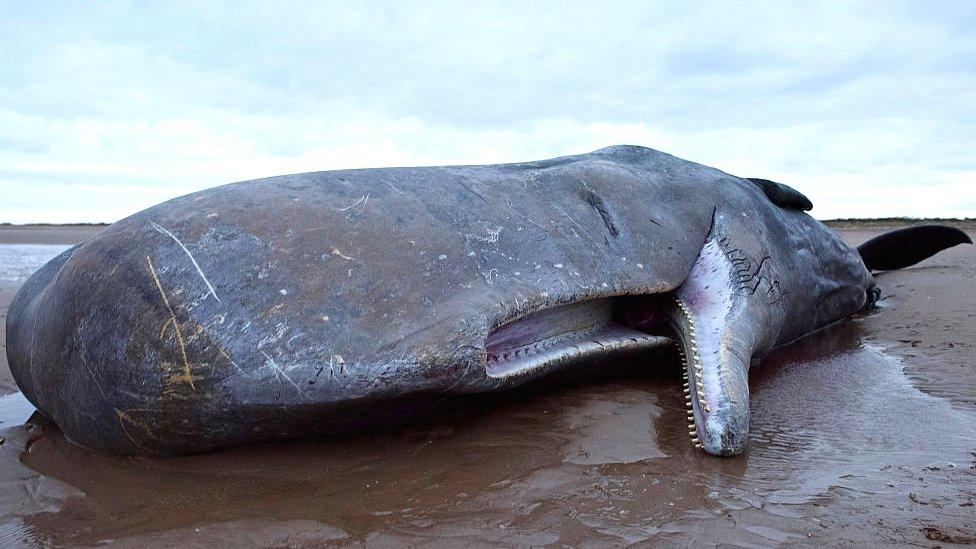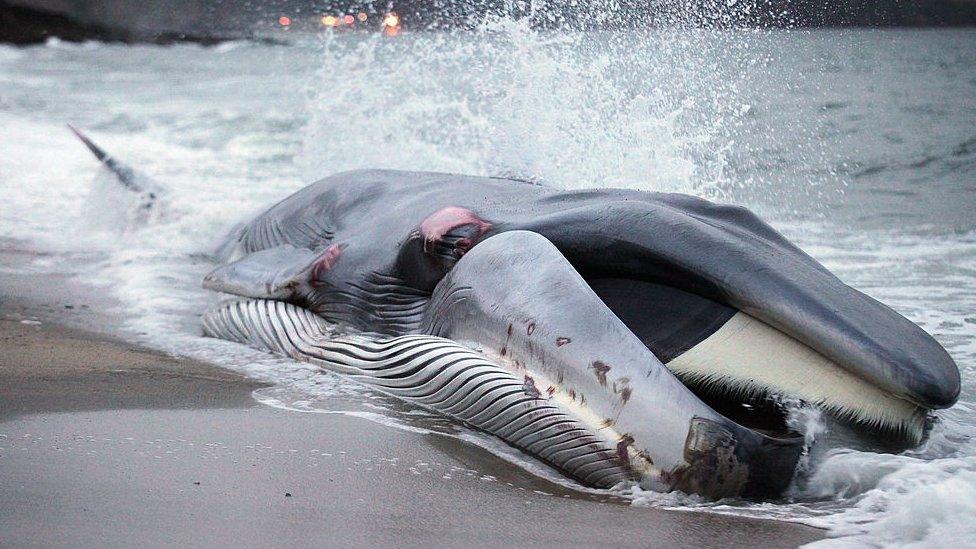Stranded whales: Numbers on the rise around UK shores
- Published

A sperm whale lies dead after becoming beached in Norfolk
The number of whales and dolphins washing up around the UK coastline has risen, according to new figures.
In 2017 alone, 1,000 animals were stranded - more than in any year since records began.
A total of 4,896 whales, dolphins and porpoises died on beaches between 2011 and 2017 - up 15% on the previous seven years.
Scientists found a number of causes for the deaths, including infectious diseases, fishing and plastic.
It's difficult to say conclusively what's driven the rise, but it's associated with multiple causes, including rises in some dolphin and whale populations, they say.
"Strandings aren't actually in and of themselves bad news," Rob Deaville of ZSL (Zoological Society of London), who led the report, told BBC News.
"There's a misconception that we're trying to stop strandings - we're not, we're trying to learn more about those that are due to human activities and then try and mitigate those where we can."
In some respects the data paints a bleak picture, but there are still positives to be drawn, he added.
More than 20 cetacean (whale, dolphin and porpoise) species were recorded over seven years - roughly a quarter of all cetacean species known in the world.
One, the dwarf sperm whale, had never before been seen in the UK.
Why are scientists investigating this?
Since 1990, scientists have been investigating why whales, dolphins and porpoises wash up around the UK coastline.
This gives an insight into the health of marine wildlife in British waters, the changing patterns of different species, and threats from human impacts, such as chemical pollution, marine noise and accidental fishing.
The underlying causes of whales becoming stranded on beaches are not always clear, including any part played by humans.

A rescue attempt fails to save a beached whale in Cornwall
What did they find?
Over seven years, post mortems were carried out on about 1,000 specimens, allowing the cause of death to be determined.
Accidental entanglement in fishing gear accounted for about one in four deaths of common dolphins, and one in 10 for the harbour porpoise.
Other deaths caused directly by humans included 25 animals struck by a ship and a single Cuvier's beaked whale which died in 2015 after swallowing marine litter.
Deaville said more monitoring was needed on a global scale to get a better picture of the threats.
He told BBC News: "Ultimately we want to make sure that our children and our children's children can still be out there and see these animals in the wild as we've been lucky to do so when we are alive."
Members of the public can report a stranded marine animal here, external through the UK Cetacean Strandings Investigation Programme, external .
Follow Helen on Twitter, external.